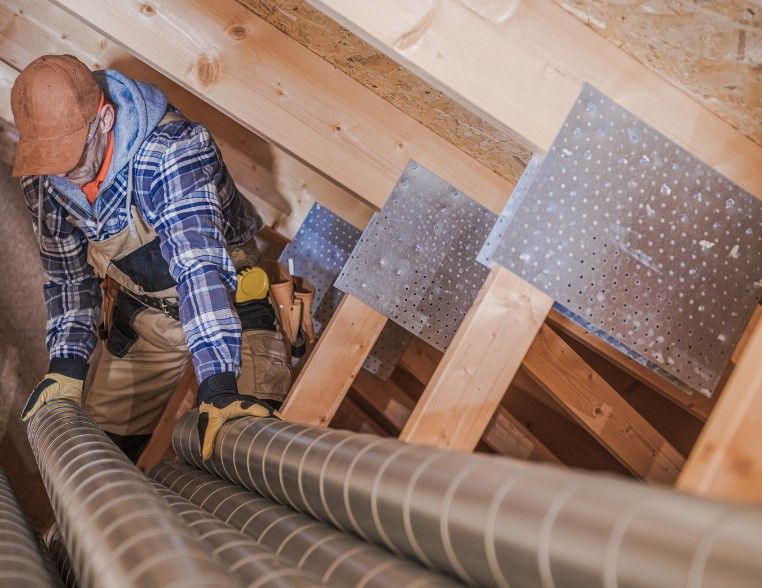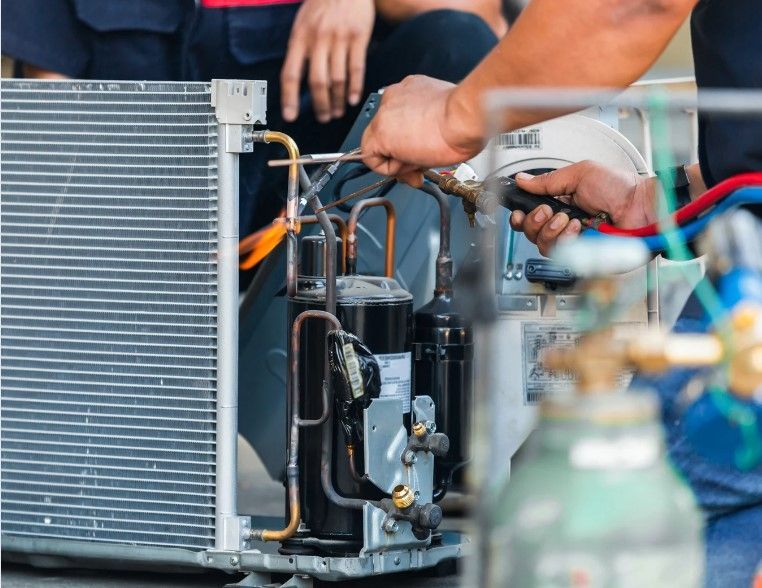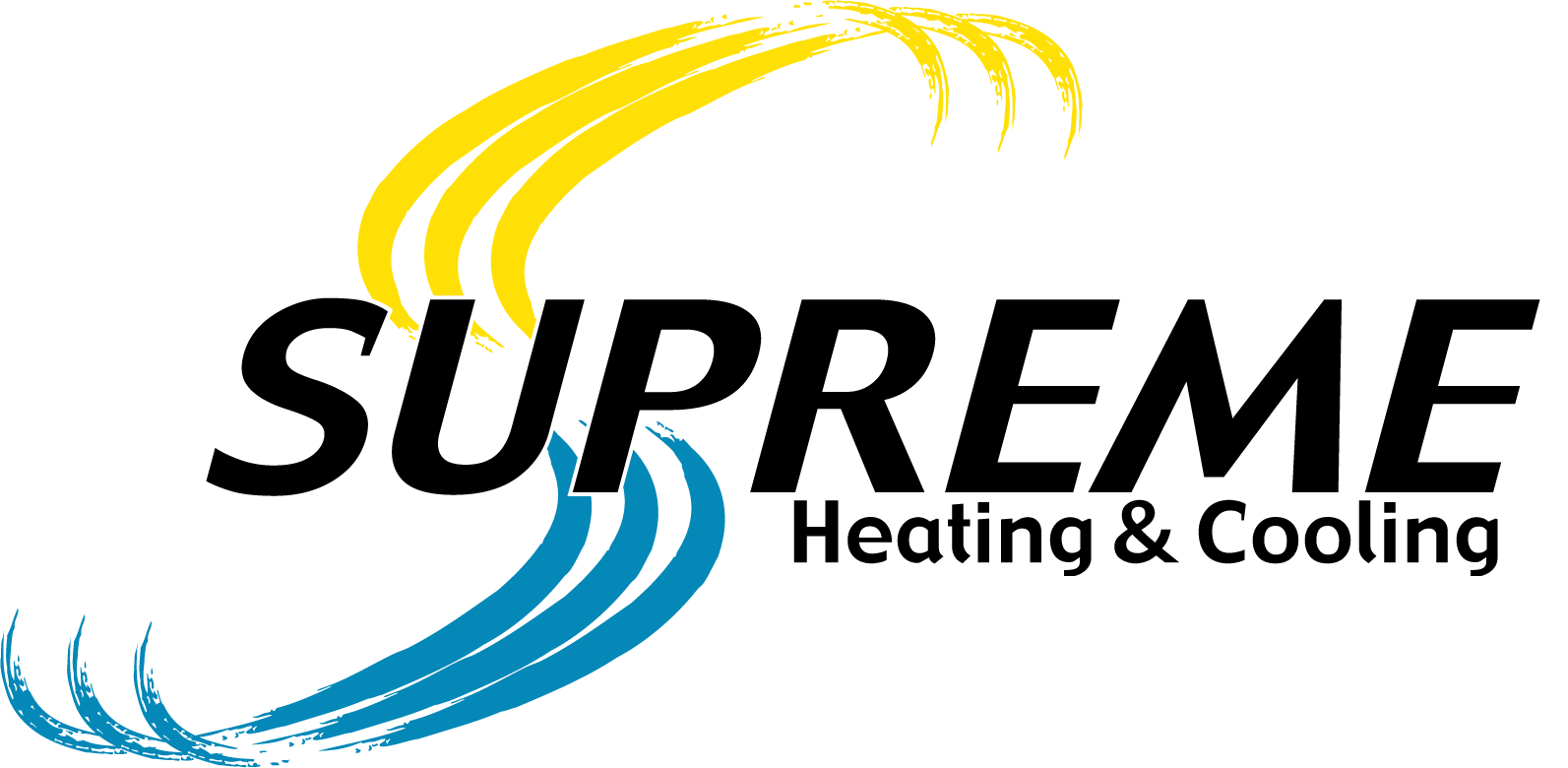Common HVAC Problems and How to Fix Them
August 2, 2024
HVAC systems are essential for maintaining comfort in your home year-round. However, like any complex machinery, they can encounter issues. Understanding common HVAC problems and knowing how to address them can save you time, money, and discomfort. Here are some of the most frequent HVAC issues and tips on how to fix them.
1. Dirty Filters
Problem: Clogged or dirty filters can restrict airflow, reducing efficiency and leading to system malfunctions.
Fix: Regularly replace your filters every 1-3 months. For high-efficiency particulate air (HEPA) filters, follow the manufacturer’s guidelines.
2. Thermostat Malfunctions
Problem: A faulty thermostat can lead to incorrect temperature readings and improper HVAC operation.
Fix: Check if the thermostat is set correctly and replace the batteries if needed. If problems persist, consider upgrading to a programmable or smart thermostat.
3. Refrigerant Leaks
Problem: Low refrigerant levels can result in poor cooling and increased energy consumption.
Fix: Have a professional check for leaks and recharge the refrigerant. Regular maintenance can help prevent future leaks.
4. Inconsistent Heating or Cooling
Problem: Uneven temperatures throughout your home can be caused by leaky ductwork, poor insulation, or blocked vents.
Fix: Inspect and seal any leaks in the ductwork. Ensure that vents are open and not obstructed by furniture or debris.
5. Strange Noises
Problem: Unusual noises like banging, clanking, or squealing can indicate mechanical issues within the HVAC system.
Fix: Turn off the system and inspect for loose components or debris. Contact a professional
if the noise persists, as it may require specialized repair.
6. Water Leaks
Problem: Water pooling around your HVAC unit can be due to a blocked drain line or a broken condensate pump.
Fix: Clear any blockages in the drain line and check the pump for proper operation. Regular maintenance can help avoid water damage.
7. Electrical Issues
Problem: Faulty wiring or electrical components can cause your HVAC system to short-circuit or fail to start.
Fix: Ensure all connections are secure and replace any damaged wiring. Always consult a professional for electrical repairs to avoid safety hazards.
8. Frozen Evaporator Coils
Problem: Coils can freeze due to insufficient airflow or low refrigerant levels, causing the system to stop cooling.
Fix: Turn off the system to allow the coils to thaw. Check and replace filters, and ensure there are no obstructions to airflow. If the problem persists, call a technician.
9. Blower Motor Issues
Problem: A malfunctioning blower motor can lead to weak or no airflow from your vents.
Fix: Check for power to the motor and inspect for any visible damage. If the motor is not working, it may need to be repaired or replaced by a professional.
10. High Energy Bills
Problem: Sudden increases in energy bills can indicate that your HVAC system is working harder than necessary.
Fix: Regular maintenance, such as cleaning filters and ducts, can improve efficiency. Upgrading to an energy-efficient
model can also reduce costs in the long run.
Regular Maintenance is Key
Preventive maintenance
is crucial to keeping your HVAC system running smoothly. Schedule annual inspections
with a professional to address any potential issues before they become major problems.
By understanding these common HVAC problems and how to fix them, you can ensure your system operates efficiently, providing comfort to your home all year long. For expert HVAC service and repairs, contact Supreme Heating and Cooling at 972-530-4231.
You might also like

By Felicia Ybarra
•
August 27, 2024
When it comes to maintaining a comfortable and energy-efficient home, your HVAC ductwork plays a crucial role. Often overlooked, this network of ducts ensures that heated or cooled air is distributed evenly throughout your home. In this guide, we’ll dive deep into HVAC ductwork, its importance, common issues, and tips for maintenance, helping you keep your home comfortable year-round. What is HVAC Ductwork? HVAC ductwork refers to the system of metal or plastic pipes and channels that distribute air from your heating, ventilation, and air conditioning (HVAC) system throughout your home. Properly installed and maintained ductwork is essential for the efficiency of your HVAC system, ensuring that every room receives the right amount of air. Importance of Quality HVAC Ductwork Energy Efficiency: Leaky or poorly insulated ducts can lead to significant energy losses, causing your HVAC system to work harder and increasing your energy bills. Quality ductwork minimizes these losses, making your home more energy-efficient. Comfort: Well-designed ductwork ensures even air distribution, eliminating hot or cold spots in your home. This consistent airflow keeps your living spaces comfortable year-round. Indoor Air Quality: Ducts that are clean and sealed properly prevent dust, allergens, and pollutants from circulating in your home, contributing to better indoor air quality. Common HVAC Ductwork Issues Leaks and Poor Sealing: Over time, ducts can develop leaks due to wear and tear. These leaks cause air to escape, reducing system efficiency and driving up energy costs. Improper Sizing: Ducts that are too small or too large for your HVAC system can result in inadequate airflow, leading to uneven temperatures and increased wear on the system. Poor Insulation: Ducts that run through unconditioned spaces like attics or basements need proper insulation to prevent energy loss. Poor insulation can lead to temperature fluctuations and higher energy consumption. Blockages and Obstructions: Dust, debris, and even pests can block your ducts, restricting airflow and forcing your HVAC system to work harder. HVAC Ductwork Maintenance Tips Regular Inspections: Schedule annual inspections with a professional HVAC technician to check for leaks, blockages, and other issues that could compromise your ductwork. Seal Leaks: If you notice any leaks, have them sealed immediately to prevent energy loss. A professional can use specialized sealants to ensure the job is done correctly. Clean Ducts: Periodic duct cleaning helps remove dust, allergens, and other contaminants that can affect your indoor air quality. This is especially important for homes with pets or residents with allergies. Upgrade Insulation: If your ductwork runs through unconditioned spaces, consider upgrading the insulation to prevent energy loss and improve system efficiency. Consider Duct Replacement: If your ductwork is outdated or beyond repair, replacing it with newer, more efficient materials can make a significant difference in your HVAC system’s performance. Conclusion Your HVAC ductwork is a vital component of your home’s comfort and energy efficiency. By understanding its importance and taking steps to maintain it, you can ensure that your HVAC system operates at peak performance. Regular inspections, sealing leaks, and proper insulation are key to keeping your ductwork in top shape. At Supreme Heating and Cooling , we specialize in HVAC ductwork services, including inspections, repairs, and replacements. Contact us today to schedule an appointment and ensure your ductwork is ready to keep your home comfortable all year long.

By Felicia Ybarra
•
July 30, 2024
Selecting the right HVAC system for your home can significantly impact your comfort, energy bills, and overall indoor air quality. With a variety of options available, it’s essential to understand your needs and the features of different HVAC systems. This guide will help you make an informed decision. Understanding Your HVAC Needs Before diving into specific systems, consider the following factors: Climate: Your local climate influences the type of system you need. For example, in areas with extreme temperatures, a robust system capable of both heating and cooling is crucial. Home Size and Layout: Larger homes or homes with complex layouts may require more powerful systems or zoned heating and cooling. Energy Efficiency: Look for systems with high SEER (Seasonal Energy Efficiency Ratio) ratings for cooling and AFUE (Annual Fuel Utilization Efficiency) ratings for heating. Budget: Determine your budget for both initial installation and long-term operational costs. Types of HVAC Systems Here’s a breakdown of the most common HVAC systems: 1. Central Air Conditioning and Heating Systems Pros: Efficiently cools and heats large homes. Consistent temperature throughout the house. Can be combined with smart thermostats for better control and energy savings. Cons: Higher installation cost. Requires ductwork, which can be expensive to install or update. 2. Heat Pumps Pros: Provides both heating and cooling. Energy-efficient, especially in moderate climates. Can reduce energy consumption by transferring heat rather than generating it. Cons: Less effective in extremely cold climates. Higher upfront cost compared to traditional systems. 3. Ductless Mini-Split Systems Pros: Ideal for homes without ductwork. Offers zoned heating and cooling. Energy-efficient and easy to install. Cons: Higher initial cost per unit. Aesthetically intrusive with visible indoor units. 4. Furnaces Pros: Effective for heating in cold climates. Long lifespan and reliable performance. Can be paired with central air conditioning for year-round comfort. Cons: Requires ductwork. Higher operational costs if using electricity rather than gas. Energy Efficiency and Environmental Impact Choosing an energy-efficient HVAC system not only reduces your carbon footprint but also lowers your energy bills. Look for ENERGY STAR-rated systems and consider renewable energy options like geothermal heat pumps. Professional Assessment and Installation Consult with HVAC professionals to assess your home’s specific needs. At Supreme Heating and Cooling, we offer expert advice and installation services to ensure you get the right system for your home. Our team will evaluate your home’s layout, insulation, and other factors to recommend the best HVAC solution. Financing Your HVAC System Investing in a new HVAC system can be a significant expense. Supreme Heating and Cooling offers financing options through Wisetack, providing loans from $500 to $15,000 with flexible terms and 0% APR options depending on your credit score. With a minimum FICO score of 540, you can find a financing plan that suits your budget. Choosing the right HVAC system for your home involves understanding your specific needs, evaluating different types of systems, and considering energy efficiency. By working with professionals and taking advantage of financing options, you can ensure a comfortable, energy-efficient home year-round. For expert guidance and top-notch installation services, contact Supreme Heating and Cooling today. Let us help you find the perfect HVAC system for your home.

By Felicia Ybarra
•
July 16, 2024
Your HVAC (Heating, Ventilation, and Air Conditioning) system plays a crucial role in maintaining comfort throughout the year, but it can also significantly impact your energy bills. Maximizing energy efficiency not only reduces your utility costs but also extends the lifespan of your HVAC equipment. Here are some practical tips to help you lower your energy bills by optimizing the efficiency of your HVAC system. Schedule Regular HVAC Maintenance Regular maintenance is essential for keeping your HVAC system running efficiently. Schedule annual inspections with a professional HVAC technician to ensure that your system is clean, calibrated, and operating at peak performance. During these inspections, the technician will check for leaks, clean components, and make any necessary adjustments to improve efficiency and prevent potential breakdowns. Change Air Filters Regularly Clogged or dirty air filters restrict airflow and force your HVAC system to work harder, consuming more energy. Check your air filters monthly and replace them as needed, typically every 1-3 months depending on your system and household conditions. This simple maintenance task not only improves efficiency but also helps maintain indoor air quality. Use a Programmable or Smart Thermostat A programmable thermostat allows you to set specific temperature schedules based on your daily routine. By automatically adjusting temperatures when you're asleep or away from home, you can reduce energy consumption without sacrificing comfort. Smart thermostats take this a step further by learning your habits and preferences, optimizing settings for maximum efficiency and savings. Seal and Insulate Ductwork Leaky ductwork can lead to significant energy loss by allowing conditioned air to escape into unconditioned spaces like attics or crawl spaces. Seal duct joints with mastic sealant or metal-backed tape and insulate ducts in unconditioned areas to minimize heat transfer. Properly sealed and insulated ductwork ensures that the air reaches its intended destination efficiently, reducing the workload on your HVAC system. Ensure Proper Airflow Obstructed vents and registers can restrict airflow and reduce HVAC efficiency. Keep furniture, curtains, and other obstructions away from vents to allow for optimal airflow throughout your home. Additionally, consider having your HVAC technician inspect and adjust airflow settings to ensure balanced distribution of heated or cooled air. Upgrade to Energy-Efficient Equipment If your HVAC system is outdated or inefficient, upgrading to energy-efficient equipment can lead to significant energy savings over time. Look for HVAC systems with high Seasonal Energy Efficiency Ratio (SEER) ratings for air conditioners or Annual Fuel Utilization Efficiency (AFUE) ratings for furnaces. While the initial investment may be higher, energy-efficient equipment pays for itself through lower utility bills and reduced maintenance costs. Consider Zoning Systems Zoning systems divide your home into separate areas or zones, each with its own thermostat and temperature control. This allows you to heat or cool specific areas of your home based on occupancy and comfort needs, rather than conditioning the entire home at once. Zoning systems can improve energy efficiency by reducing unnecessary heating or cooling in unoccupied areas. Utilize Natural Ventilation and Shade Take advantage of natural ventilation and shade to reduce the need for mechanical cooling. Open windows and use ceiling fans to improve airflow and create a cross-breeze on mild days. Close blinds or curtains during hot periods to block out direct sunlight and reduce solar heat gain, easing the workload on your air conditioner. Educate Household Members about Energy Efficiency Promote energy-efficient habits among household members to maximize savings. Encourage turning off lights and electronics when not in use, using appliances during off-peak hours, and maintaining moderate thermostat settings to conserve energy. Small adjustments in behavior can complement HVAC efficiency measures and lead to significant reductions in energy consumption. Monitor and Optimize Energy Usage Monitor your energy usage and utility bills regularly to track patterns and identify opportunities for improvement. Many utility companies offer energy usage reports and incentives for energy-efficient upgrades. Use this information to make informed decisions about energy-saving investments and adjust settings accordingly to maximize efficiency and savings. Maximizing energy efficiency in your home's HVAC system not only lowers your utility bills but also contributes to environmental sustainability. By implementing these tips and investing in regular maintenance and energy-saving technologies, you can achieve long-term savings while enjoying optimal comfort year-round. For professional advice and services to enhance your HVAC system's efficiency, trust the experts at Supreme Heating and Cooling to help you achieve your energy-saving goals. Your home deserves the best in comfort and efficiency, and we're here to make that happen.
Book a Service Today
Thank you for contacting us.
We will get back to you as soon as possible
We will get back to you as soon as possible
Oops, there was an error sending your message.
Please try again later
Please try again later
Quick & Reliable
We are available 24/7 via text, email or telephone
Location
777 N. Grove Rd Suite 117
Richardson TX 75081
contact@supreme-ac.com
Call
(972) 530-4231
© 2025
All Rights Reserved | Supreme Heating and Cooling, Inc. | TACLA36129A
